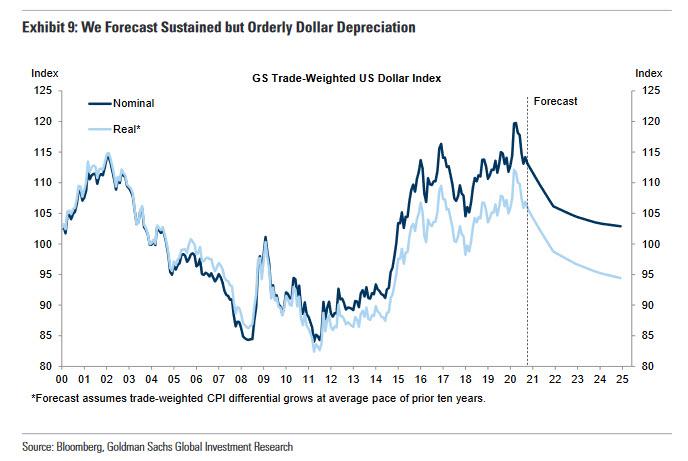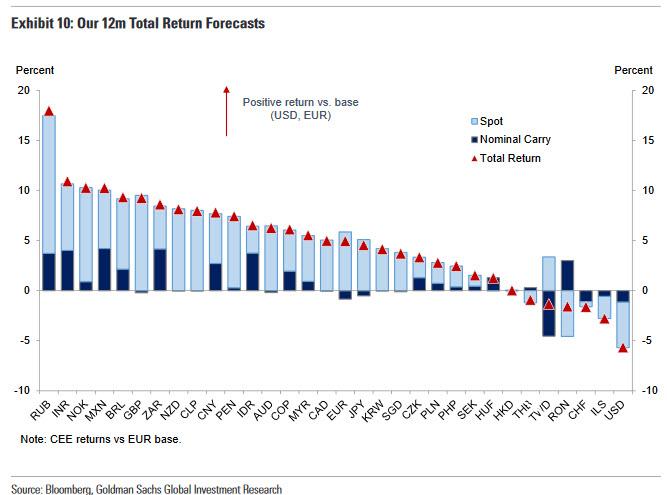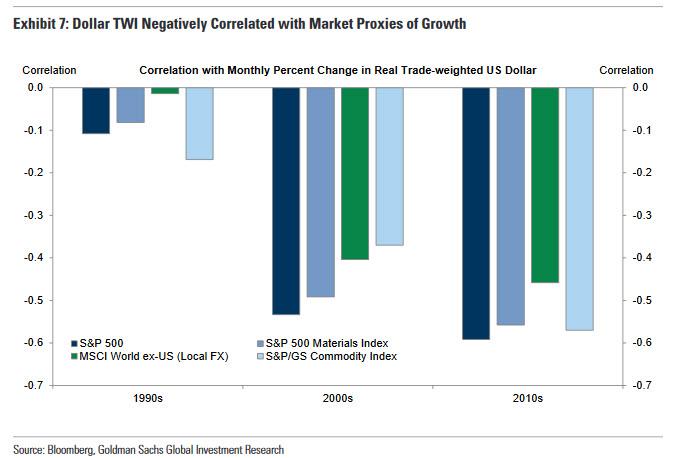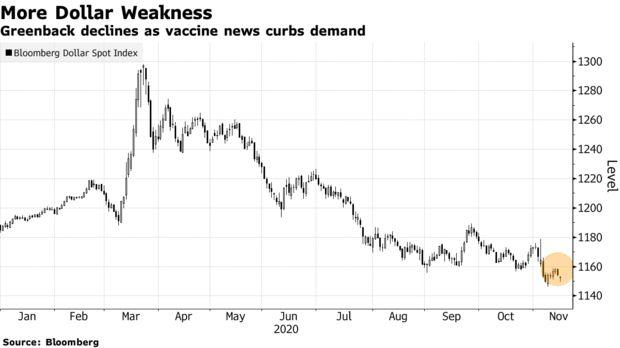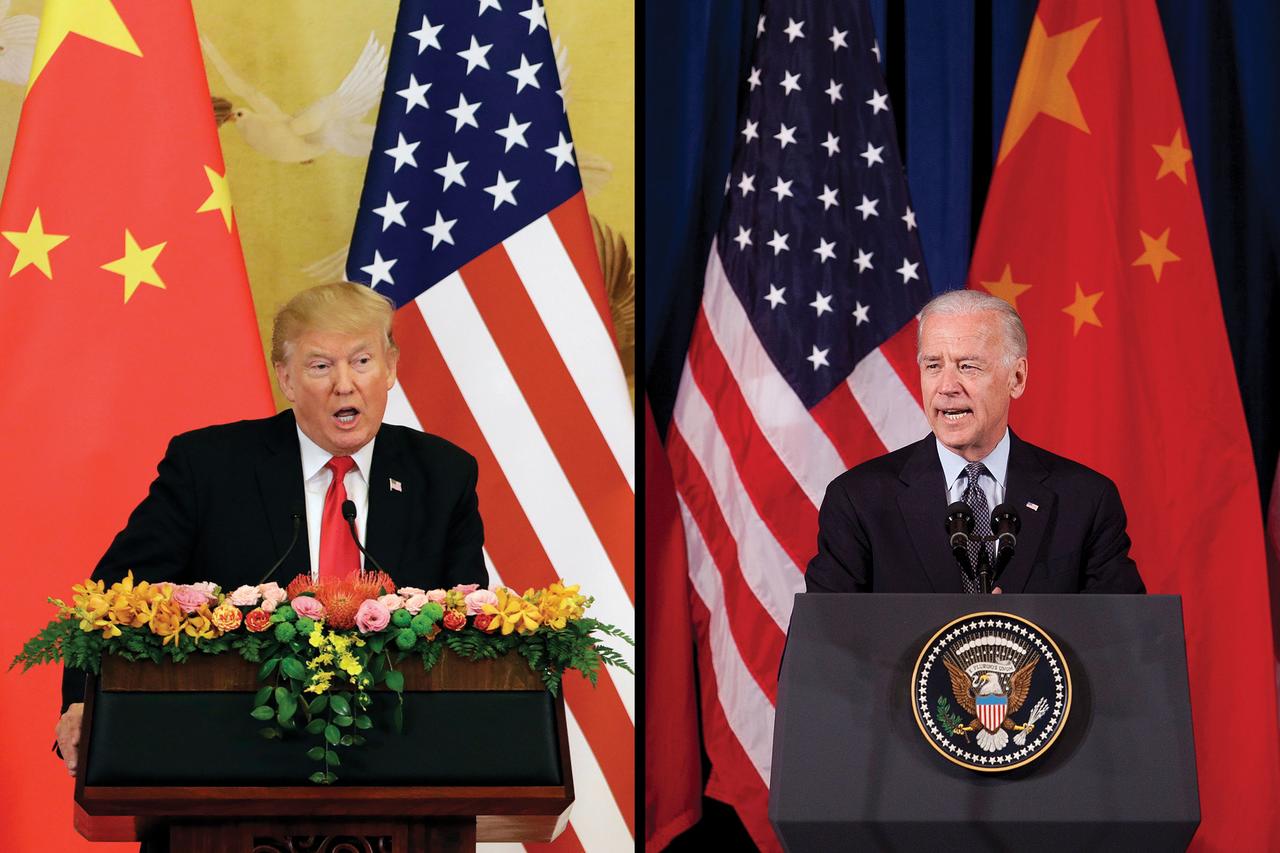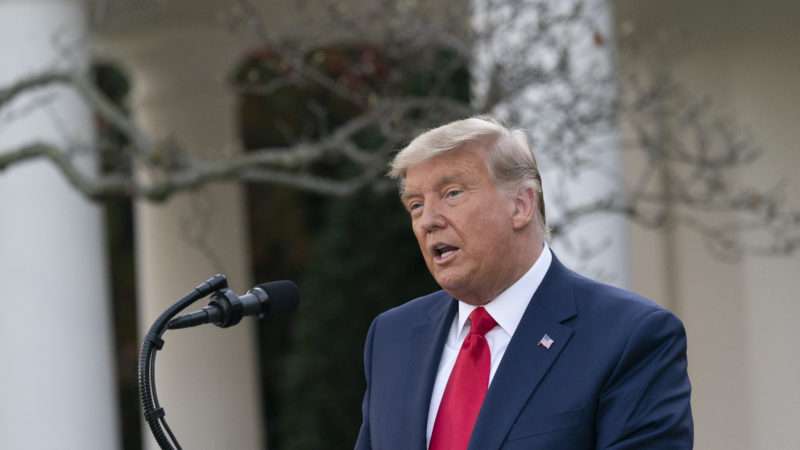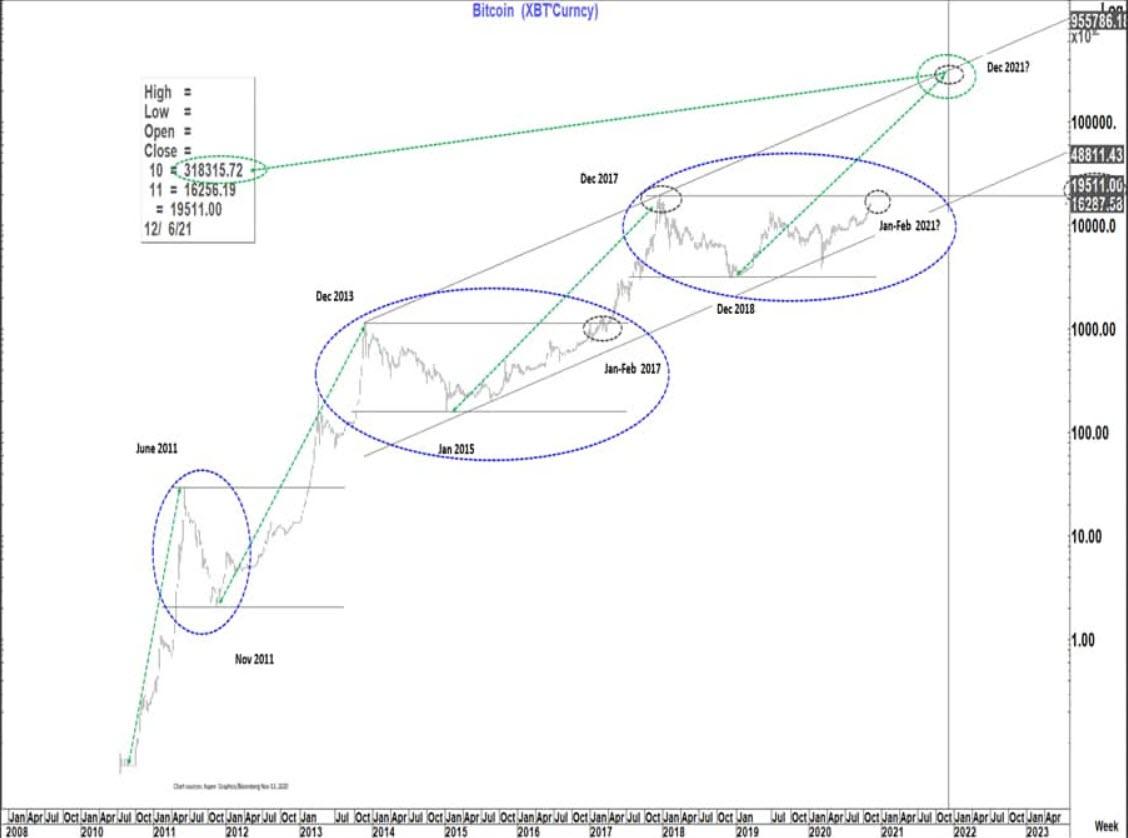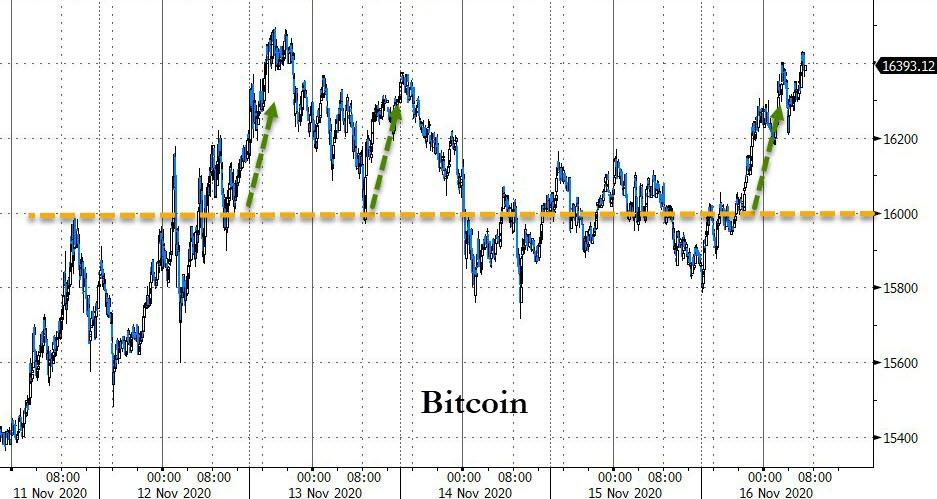Goldman, Citi See Dollar Sliding In 2021, Plunging As Much As 20%
Tyler Durden
Mon, 11/16/2020 – 11:25
Wall Street latest top consensus trade for 2021 has quickly emerged as a dollar short. After Deutsche Bank flip-flopped on its view for the dollar, first closing out its long-running dollar short then reversing itself just days later and renewing its USD short , other banks have joined the bandwagon expecting a major drop in the world’s reserve currency in the coming year.
In a Friday note from Goldman’s chief FX strategist Zach Pandal, he predicts that “depreciation in the broad Dollar can continue in 2021” and writes that his USD cross forecasts translate into a 6% decline in the broad trade-weighted Dollar index over the next 12 months, and a “sustained but orderly” 15% real depreciation from its 2020 peak to the end of 2024.
In fact, Goldman’s 12-month outlook on the dollar means that the bank sees the US currency being the worst performer in the coming year, while the Russian Ruble is expected to be the best currency in 2021, rising nearly 18%.
Some more from Goldman’s short dollar thesis:
- After a lengthy period of US economic and asset market outperformance, the Dollar appears meaningfully overvalued—about 10% on standard metrics — and many investors are overweight US assets.
- The Fed has also cut rates to zero,and its new policy framework should result in a long period of deeply-negative short-term real rates.
- The combination of high valuations and negative real rates skews the Dollar outlook to the downside. A rapid recovery in the global economy should weigh on the “safe haven” Dollar, even if the US economy performs well.
Needless to say, Goldman’s FX views incorporate the bank’s economists’ above-consensus US GDP forecasts which also serve as the basis for Goldman’s aggressive 4,600 S&P500 in 2022 forecast;
Ironically, Goldman would expect a weaker Dollar if US growth were moderately slower, “as robust global growth tends to boost the currencies of commodity exporters, emerging markets, and the economies most geared to global trade, and tends to weaken the Dollar.”
But if Goldman’s forecast for a 6% drop in 2021 is aggressive, then Citi’s prediction is outright bizarre: according to Citigroup FX strategist Calvin Tse, the dollar is likely to begin a drop of as much as 20% in 2021 should Covid-19 vaccines become widely distributed and help to revive global trade and economic growth.
Quoted by Bloomberg, Tse said that “vaccine distribution we believe will check off all of our bear market signposts, allowing the dollar to follow a similar path to that it experienced from the early to mid-2000s” when the currency started a multi-year downturn. Echoing Goldman, Citi said that the election was not ultimately the catalyst for a significant plunge, but Citigroup says the broad macroeconomic backdrop will be a bigger driver of the dollar going forward.
Citigroup expects that in addition to the impact from vaccine breakthroughs, the dollar will suffer as the Fed will remain dovish when the global economy normalizes, the rest of the world is likely to grow at a faster pace, and investors will rotate out of U.S. assets and into international assets, Bloomberg reported.
Most Wall Street strategists have been predicting for months that the U.S. election, vaccine breakthroughs and Federal Reserve policy could deal a serious blow to the currency.
As a reminder, after soaring in early March on the covid shutdown scare, the Bloomberg dollar index has fallen more than 11% from its March peak.
It came under additional pressure last Monday and again today, following news that first Pfizer and then Moderna’s Covid-19 vaccine were effective in a clinical trial, weighing on demand for havens like gold, the dollar, Treasuries and growth stocks.
via ZeroHedge News https://ift.tt/36KbPTz Tyler Durden
